 |
| Top from left: Anuk Arudpragasam, Patricia Lockwood, Nadifa Mohamed; bottom from left: Maggie Shipstead, Damon Galgut and Richard Powers |
A pioneering pilot, a vast wilderness, a drunken afternoon... Booker shortlisted authors reveal their inspirations
Booker prize reveals globe-spanning longlist of ‘engrossing stories’
Analysis / The 2021 Booker shortlist tunes in to the worries of our age
Nadifa Mohamed is sole British writer to make Booker prize shortlist
Booker Prize 2021 shortlist unveiled as race for £50,000 prize hots up
Sat 23 Oct 2021 10.00 BST
 |
| Patricia Locwood |
Patricia Lockwood
‘I did not see a character, but rather a horizon’
The idea often comes on a heightened day, when you’ve had too much of something or too little of something else, or when everything is about to be completely different. On the day I started No One Is Talking About This we were moving apartments, and I was hiding from my husband in the bedroom so I didn’t have to help – or, as he more charitably put it, so I didn’t walk directly into the movers just as they were lifting my Glass Menagerie out the door.
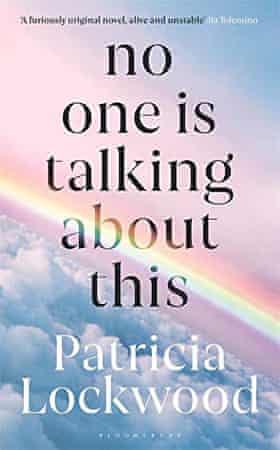
I sat on the floor and began to read Mrs Caliban, the 1982 masterpiece by Rachel Ingalls. This was before it was rereleased, and I had long ago lent out my cherished copy with the abstract, beloved frogman on the cover. I barely remembered the lurking background sadness of the book, that the protagonist had lost a child. I did not yet know that I would have a niece, and we would call her Little Froggy. I just felt the heightened moment, and for some inexplicable reason took a picture with my phone of the shadows that the vines were making on the wall, in my now empty bedroom, where I sat alone, not helping. I probably looked at the picture and considered whether I should post it.
The initial voice of Mrs Caliban asks: Are you living one day perpetually? I thought, I am living one day perpetually. I closed my eyes and saw forward movement. I did not see a character at all, but rather a horizon that she walked towards and could not reach, wide as a line of text. I thought: “What would happen if I wrote about my real day, as I really lived it,” and I wrote the first line. The horizon came no closer. I thought, I could write this book for ever, until something really happens.
When the news of the shortlist came I sat at the desk in the hotel room and tried to steady myself. I saw a roomful of people in … gowns? Tuxedoes? Then I thought of the human face that I see so constantly: curling hair, damp forehead, large eyes. When they asked me how I felt, I said all I could say: that it was too much, it was immense, that I was grateful.
No One Is Talking About This by Patricia Lockwood is published by Bloomsbury.
Anuk Arudpragasam
‘The Sri Lankan civil war shaped my writing more than any firsthand experience’
There are certain events that seem to exist outside time, that seem to remain fixed in the mind, vivid and primordial, suspended in a kind of endless present. They stay with us as we wake, as we eat, and as we work, through all the little tribulations of everyday life.
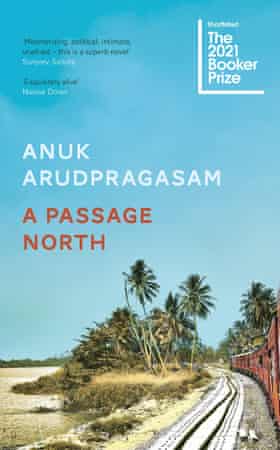
For myself and members of my community, the destruction of Tamil society in northern Sri Lanka during the final two years of the civil war was such an event, and despite the fact that I was absent while it happened, precisely because I was absent, perhaps, it has shaped my writing more than anything I have felt or experienced firsthand. My first novel, The Story of a Brief Marriage, was an attempt to project myself into the midst of that great violence, a small, private penance born out of shame at my unscarred body and my easy life. It was a hard book to write, and when I finished I wanted to move on to less painful topics, to write about situations that were closer to the world I actually inhabited. I began writing about the relationship between a young man and his grandmother in Colombo, a novel about desire, ageing and the passage of time. As the pages accumulated, though, I started noticing my earlier subject surfacing in oblique and unexpected ways, like little Freudian slips that betrayed my conscious plans. Disturbed by their appearance, my first impulse was to excise these moments of violence from the text, and it was only over the course of months and years that I came to accept what now seems obvious: that I was still unable to move on.
I decided I would write not about the violence, exactly, but about what it means to witness such violence from afar, to be unable to act or intervene, and then unable to forget. When violence of such magnitude becomes ingrained in one’s consciousness even the most innocent habits begin to feel inappropriate, to seem frivolous or absurd or disrespectful. Everyday life becomes subject to constant scrutiny, to a relentless interrogation of what is consonant and dissonant with the awareness of genocide. A Passage North is about other things too – desire and longing, the possibilities of liberation – but above all it is about the daily life of such a consciousness, about how, even as time passes, certain events never let us go.
A Passage North by Anuk Arudpragasam is published by Granta.
 |
| Maggie Shipstead |
Maggie Shipstead
‘A statue of the pilot Jean Batten caught my eye’
In October 2012, a statue outside the international terminal of Auckland airport caught my eye: a woman in an overcoat balanced on the balls of her feet as though striding forward, one hand cradling a bouquet of flowers and the other aloft, waving. This was the pilot Jean Batten, who, in 1936, had been the first person to fly solo from England to her home country of New Zealand. A quotation of hers, inscribed on the pedestal, began: “I was destined to be a wanderer.”
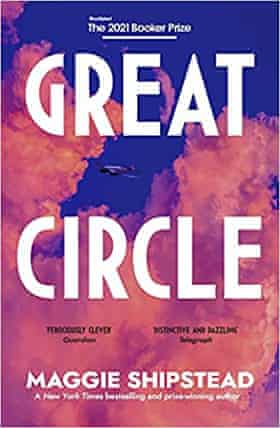
I was heading home to California after a solo trip around the South Island. At the time I had started what I’d thought would be my third novel, but the project had died on me 100 pages in, leaving me lost and mopey. Uncertainty about what to write next always feels like it’s about to crystallise into never writing anything ever again. But Batten’s triumphant bronze likeness and her confidence in her own destiny triggered a simple, decisive thought: I should write about an aviator.
Two years passed before I started work on Great Circle, and three more before I finished a mammoth 980-page first draft. Since I’m constitutionally unable to plan books before I start writing them, I was (forgive me) flying blind through the construction of a narrative involving two intertwined plotlines, multiple eras and voices, about a million distinct settings, an ever-expanding cast of characters, and occasional forays into natural and human history that reached as far back as the ice age. The research was constant and relentless, the scale of the process overwhelming. Partly in service of the book, I became a travel journalist during those years, and Marian’s peripatetic life blurred into my reality.
When a novel is still in progress, it is alive in your private, inner world, roaming and shape-shifting. To finish it, for it to become a book, you must, in some ways, kill it. You freeze it in place, render it as immovable as a fossil, extinguish its what-ifs, give up hope of taming its imperfections. But that is all necessary for it to live again in the minds of readers. The Booker shortlisting is an unexpected and indelible inflection point in the life of this book and my own, a joyful thing I’m grateful to be experiencing.
Great Circle by Maggie Shipstead is published by Doubleday.
Richard Powers
‘I was locked down in half a million acres of wilderness’
When the pandemic hit, I went into quarantine in the Great Smoky Mountains. It was a lucky place to be locked down, with half a million acres of wilderness in my backyard. But it proved to be a hard place to begin writing a new novel. I couldn’t travel to explore the places where a new story might unfold. I couldn’t interview people in person or gather print materials in a library, the way I usually do when setting out on a new project. But I pressed ahead in isolation, trying to fashion a story out of old bits of material that I had squirreled away for years.
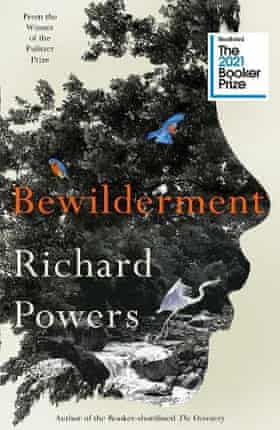
A month or two in, I hit the wall. My characters weren’t coming alive, and I knew that something was wrong with my plot. When I can’t write, it’s usually a sign that I shouldn’t be writing. And the best remedy I know for that impasse is to get out and walk.
I walked almost every day for a few weeks. One overcast afternoon, four miles down a remote trail that tracked a steep mountain stream, I felt a small boy walking alongside me, taking in the nearby heron that was fishing in the cascades, looking up at the tunnels of rhododendron and down at the carpets of hepatica and rue anemone. He seemed to say: “Are you for real?” It was the same phrase that a friend’s beloved son, who had special needs, had always liked to ask me when he couldn’t tell if I was being serious or just teasing. I thought that this visitor was asking if the world really was as rich and wild and lucky as the trail we were on. Then it seemed he was asking if we were really letting it all disappear.
The vague impression passed quickly, but by the time I turned back and retraced the four miles to the trailhead, I could see my story’s central character in detail.
Bewilderment by Richard Powers is published by Hutchinson Heinemann.
 |
| Nadifa Mohamed |
Nadifa Mohamed
‘I was struck by a mugshot of a Somali sailor imprisoned in Cardiff in the 1950s’
Inspiration is a strange word; it sounds so clear and defined while the reality is much stranger. The desire to write The Fortune Men crept up on me over many years, a desire that would ebb and flow but never let me go. I first read about Mahmood Mattan in my early 20s when I had just finished a history and politics degree from Oxford with little knowledge of my own history. I was struck by a mugshot of a Somali sailor imprisoned in Cardiff in the 1950s in a tabloid newspaper: I remember discussing him with my friends and then my father, who told me he had known him when they both lived in Hull. I wanted to know what had brought Mahmood here and what had led to his lonely and early death in Cardiff prison.
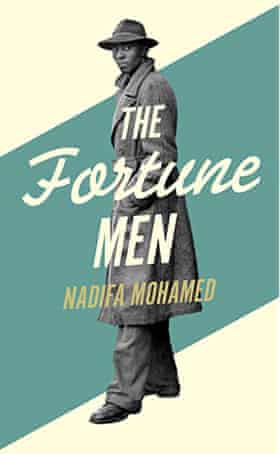
Other books got in the way but there was a sense of unfinished business and in 2015 I started researching Mahmood’s story in earnest. The National Archives allowed me a luxury I had never enjoyed before – transcripts, photos, receipts, all the hoarded documents of the British state – and as I read through them I saw the tragedy play out in real time. He had thought he understood how things worked in this country but those papers in their bureaucratese showed how much he misunderstood the danger he was in. The relationship between writer and subject began to shift as his own defiant words rang in my mind; he could speak well enough for himself, it wasn’t for me to create this character but to listen to and empathise with him.
It was also easy to fall in love with the world that the novel was set in: I wish I had heard a young Shirley Bassey busking with her cap, that I had seen Tiger Bay alive as one of the most important docklands in the world. I felt I had found my kind of place and my kind of people. Mahmood was the spirit who had led me there and who still haunted it but the Britain that they had helped create – cosmopolitan, creative – was the one I wanted to declare loyalty to.
The Fortune Men by Nadifa Mohamed is published by Viking.
 |
| Damon Galgut |
Damon Galgut
‘The idea came to me one semi-drunken afternoon’
What goes into the writing of a book? Sometimes even the writer doesn’t know. The origins of this novel probably lie in my childhood and the experience of growing up in Pretoria in the 1960s and 70s. My unhappy family life from back then is in there too, with all its fractures and foibles; to say nothing of the country at large, with its conflicting chorus of voices.
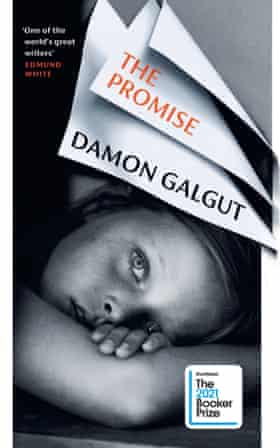
On a more conscious level, the idea for the book came to me one semi-drunken afternoon, listening to a friend describe the funerals of his parents, brother and sister. Unlikely though it sounds, he turned tragedy into comedy, by focusing on the antics of the living. At least one of his anecdotes – about a hysterical relative forcing the undertaker to open the coffin, to check the right corpse was inside – found its way into the novel. Dark stuff, to be sure; but not without its funny, human fringe.
The dramatist in me saw the potential in staging a family history in four acts, each one centred on a burial. And if each act took place in a different decade, with a different president in power, I saw a way to show the nation behind the family, and give a taste of the time.
Every narrative has its own voice, and it can take a while to find it. When I started writing, I floundered amongst all the death and decay. That wasn’t my subject, but how to break free? Key in this case was setting the novel aside to do a film script. Not a fulfilling experience in itself, but revolutionary for the book when I came back to it. Here was the voice I was looking for: like the camera in a Fellini movie, a character in its own right, observing, commenting, mocking, wondering. The antidote to Death is Life, of course, and now I heard what it sounded like.
From that point, the writing took on a freedom I hadn’t felt before. I could jump between multiple points of view, sometimes in a single sentence. I could even break the fourth wall, as theatre and film have been doing for decades, and address the reader directly. But why stop there? I saw other walls to knock down, and I’d found my hammer. No other writing experience has given me this kind of deep pleasure. Who knew that vandalism could be so much fun?
The Promise by Damon Galgut is published by Chatto.
The winner of the Booker prize will be announced on November 3 in an award ceremony held in partnership with the BBC and broadcast live from 7.15pm.
The winner will discuss their work and answer some of your questions at a special Guardian Live online event on Tuesday 9 November.




No comments:
Post a Comment